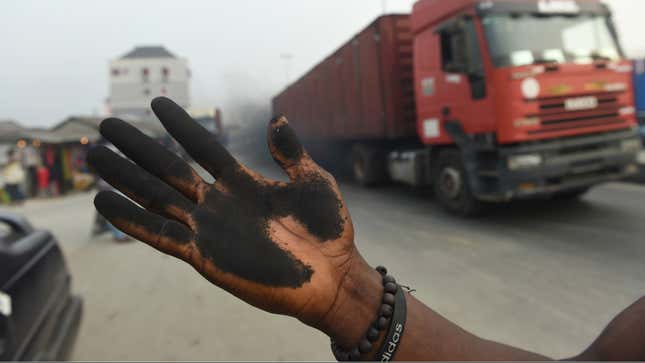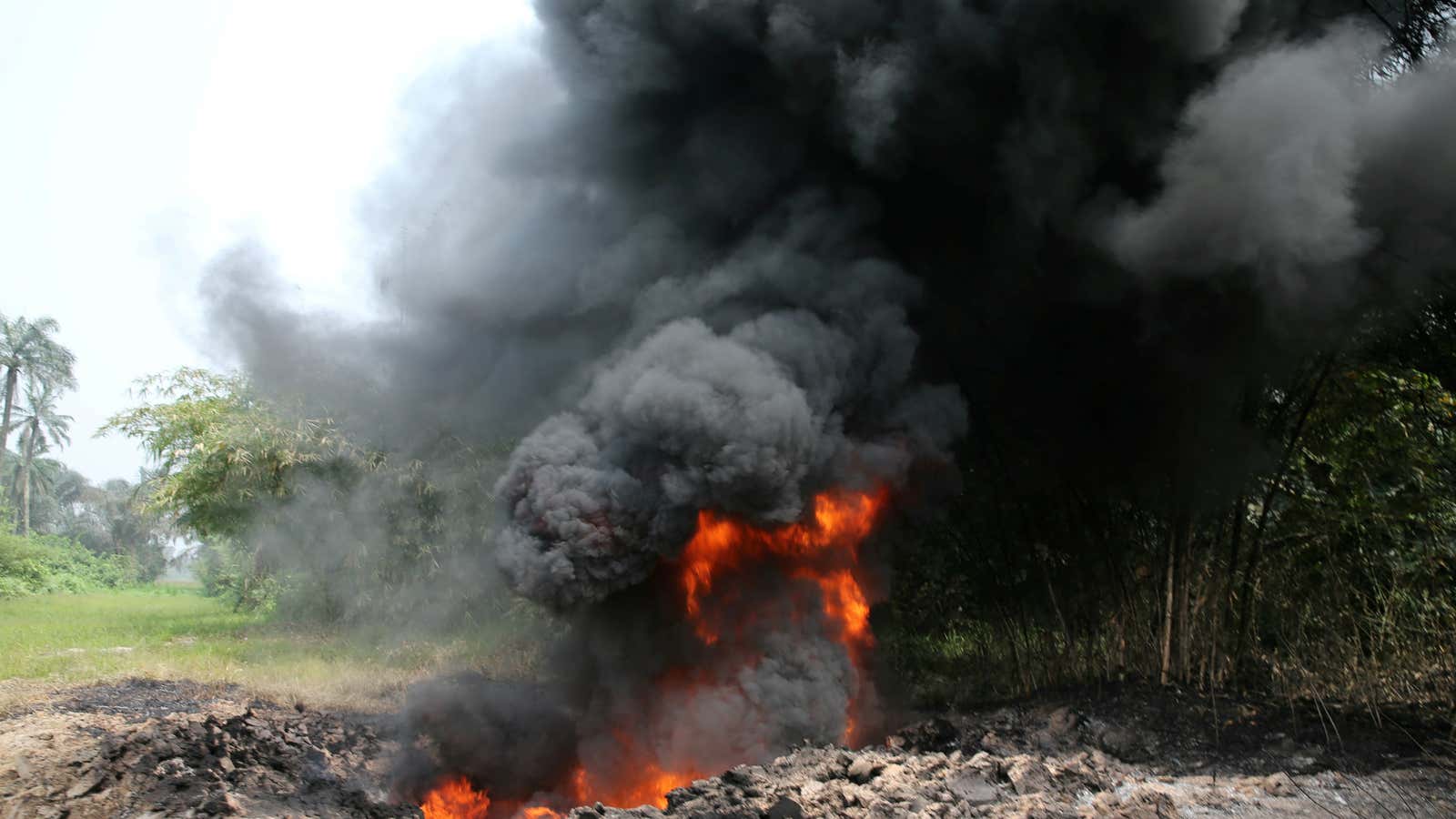Across Nigeria’s oil-producing Niger-Delta region, environmental pollution has long been a part of daily lives.
But while residents have become used to multiple oil spills which have damaged livelihoods and farmlands, they currently face a new kind of danger: rising black soot particles in the air. Since November, residents of oil industry hub city Port Harcourt, are complaining about increased soot residue on surfaces in and out of their homes.
Nigeria’s ministry of environment declared an air pollution emergency in the affected areas earlier this week. The ministry claims preliminary test samples of the soot indicated it was caused by ”incomplete combustion of hydrocarbons” as well as “asphalt processing and illegal artisanal refinery operations.”

In a bid to curb the pollution, the ministry has shut down an asphalt processing plant operating in the area. The state government has also sealed off a Chinese company in the city for “aggravated air pollution, and breach of environmental laws.”
For their part, residents petitioned the United Nations Environment Programme to “employ its considerable clout” to investigate the problem and are protesting the increased pollution on social media, with the #StopTheSoot hashtag.
If left to fester, the increased air pollution poses major health risks for residents in the area. Scientists have found dirty air caused more premature deaths than unsafe water, unsafe sanitation, and malnutrition in Africa in 2013.
Nigerians are particularly at risk as a 2016 World Health Organization report on air pollution named four Nigerian cities among 20 of the world’s worst-ranked cities for air quality.
Nneoma Nzewi, a Lagos-based client services professional who frequents Port Harcourt for business says her most recent trip in early February was very different. “It was very uncomfortable because the city was hotter than usual. Soot was everywhere, on surfaces inside and outside homes,” she told Quartz. “People are doing what they can to stay safe. Wearing nose masks, which are now sold in traffic, has become necessary to avoid breathing in dangerous particles.”
